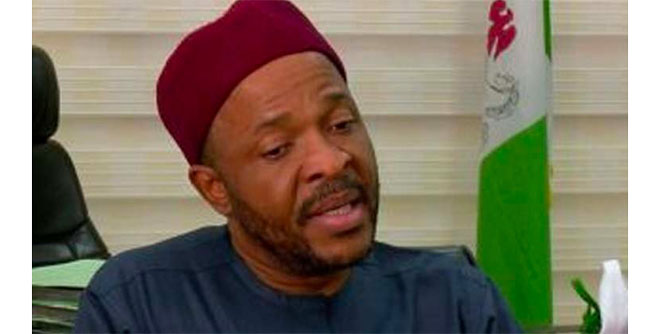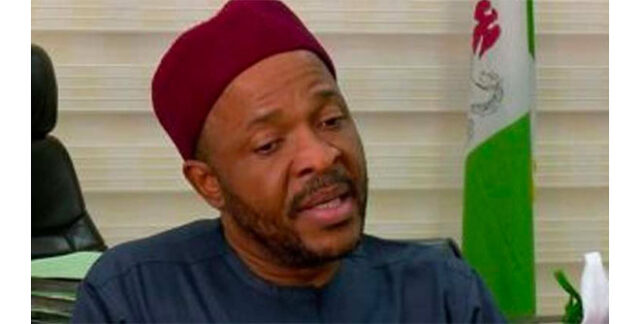
By Uche Amunike
Barely two weeks after Nigeria Education Minister resigns, President Muhammadu Buhari commends him for complying with laid down guidelines put in place by the ruling All Progressives Congress (APC).
The Minister, Emeka Nwajiuba, after accepting nomination by his supporters to contest the office of the presidency, reached out to the president and informed him that he would like to disengage from office in order to concentrate on his campaign and avoid any conflict of interest.
This was what led to President Buhari, singling him out during the Federal Executive Council meeting, Wednesday to laud him for his compliance, even as he gave directives to other members of the council with intentions of running for the 2023 Presidential election to resign with immediate effect.
The President made it clear to Ministers and appointees who refused to resign before now that they may not be cleared by the APC Screening Committee for failing to comply with the article 3(L) of the party’s guidelines which stipulates that all political appointees with political ambitions should resign their offices 30 days before the party primaries and national convention.
The Special Assistant to the former Minister of Education, Mr Paul Odili confirmed this to be true and stated: ‘That the Honourable Minister, on accepting the nomination form on the 27th of April bought for him by his supporters led by an umbrella group, Project Nigeria, wrote the President on the 28th informing him that having accepted the nomination by his supporters to contest the office of the presidency on the party’s platform, that he would like to disengage from office to enable him concentrate on his campaign and to avoid any conflict of interest. I can tell you Mr. President immediately accepted his letter of resignation.’
The only appointee in President Buhari’s cabinet that has lived up to that requirement set by the APC so far is Nwajiuba.
The directive however, excludes the Vice President, Prof Yomi Osinbajo because he is an elected member of the cabinet.
Recall that apart from the Electoral Act, Nwajiuba’s decision to join the presidential race generated public outrage especially on social media, as the issue of ongoing strike action by the Academic Staff Union of Universities (ASUU) is yet to be resolved.
After the Education Minister resigned to opt for his presidential bid, Nigerians condemned the purchase of the form which was reportedly bought for him by a group known as Project Nigeria, especially at this time in the country when Nigerian students have been on strike since February 14, describing it as being insensitive to the plight of these students.
Nwajiuba was a member of the House of Representatives from 1999 to 2003 under the platform of the defunct All People’s party (APP) and was re-elected into the House in 2019 under the aegis of the Accord Party (AP), before his appointment by President Muhammadu Buhari.
The Ministers affected include Transportation, Niger Delta Affairs, State Education, State Petroleum Resources, Labour and Employment, among others.







